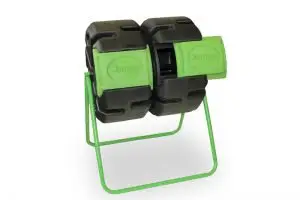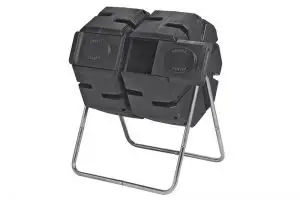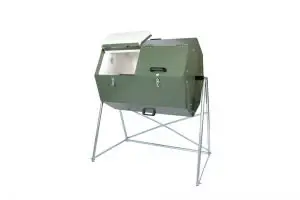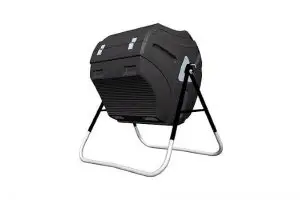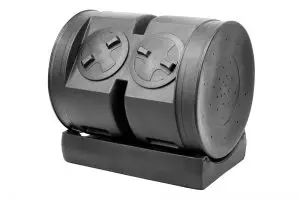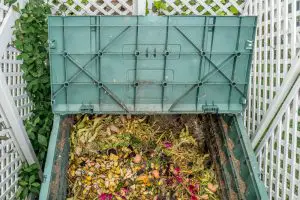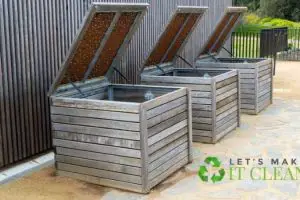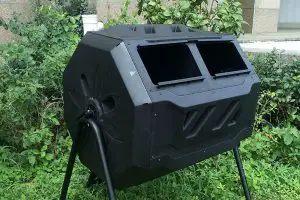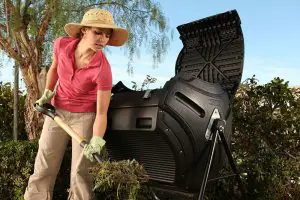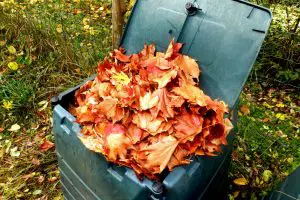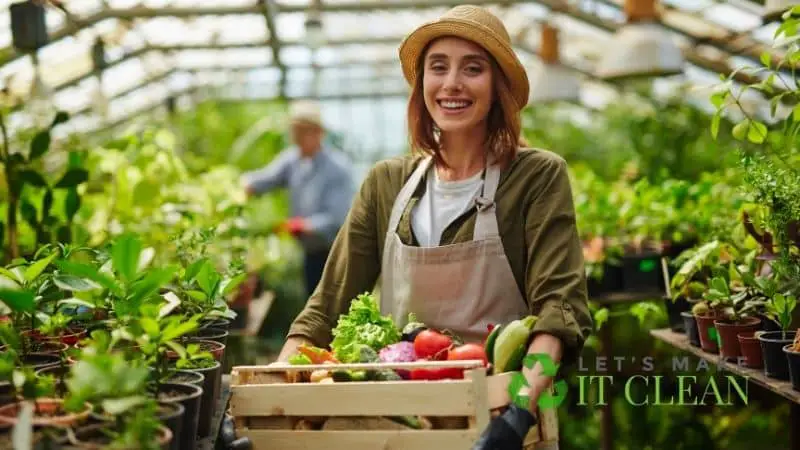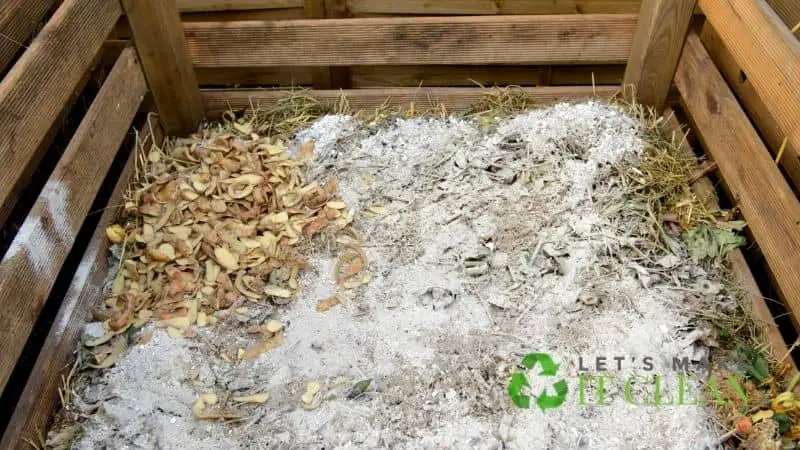Composting is an excellent healthy way of disposing of the organic waste from your kitchen and at the same time helps in enriching your soil which in return will give healthy vegetables, flowers, or anything else that you have planted in your garden.
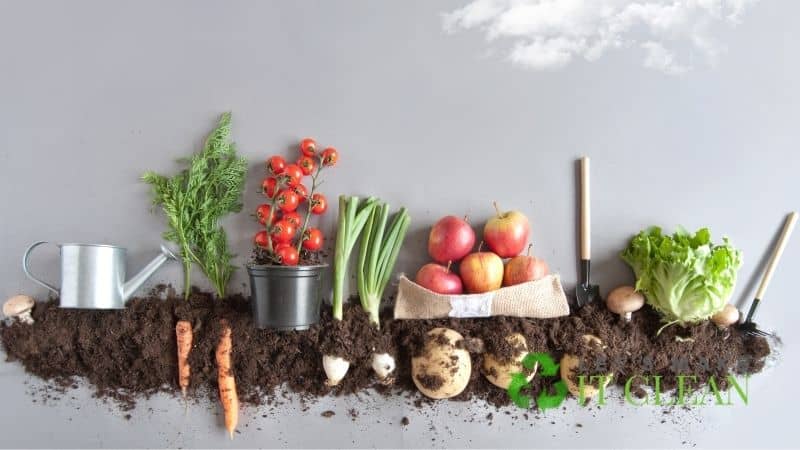
The composting process is easy and doesn’t have to be smelly when you use the right tools.
To get why you should always compost the organic waste in your house, read through this article, and that way, you will take part in saving the surroundings and the world as a whole.
Quick Navigation
Times are changing. People are choosing to live better lives. What exactly is a better life? Eating healthy, working out, and conserving the environment. This is where composting is important.
By composting, you can live better in all the above ways.
You are probably wondering, what about getting myself dirty and the whole smelling compost process? Relax, it doesn’t have to be that way.
Technology has improved. You don’t have to handle the compost pile directly. At the same time, there are compost bins that help in containing the smell. That way, it is a win-win for everyone.
From making your compost grow your organic vegetables and flowers, which help you eat healthy, recycling the organic waste in your kitchen, and the enrichment, you provide to the soil after you use the compost manure. This article will tackle all that in detail and many more.
What Are the 5 Benefits of Composting?
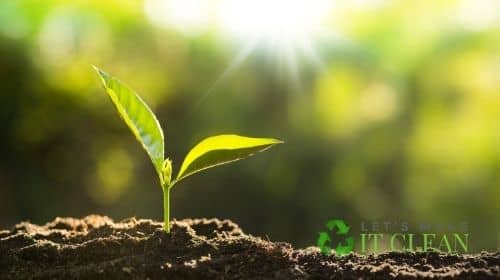
1. More Nutrients to the Soil
The first benefit of backyard composting is it helps in adding nutrients to the soil. An example of these nutrients includes nitrogen and carbon, used by plants in the growth and photosynthesis processes.
Apart from that, compost helps retain water that the plants use in their growth.
2. Important Organisms in the Soil
Microorganisms are vital in healthy soil. The compost helps provide those microorganisms like fungi, bacteria, and protozoa found in decomposing organic materials.
Microorganisms help provide air in the soil, which helps in the whole growth. Also, it helps in fastening the decomposing of other organic materials found in healthy soil.
Microorganisms in the soil also help in converting nitrogen into a usable form. Another importance of organisms is they help in eliminating some plant diseases.
3. Help in Recycling Waste
It’s a better way of disposing of and recycling kitchen waste. What % of your waste is organic? Imagine if you didn’t have to add all your kitchen waste to the trash bin?
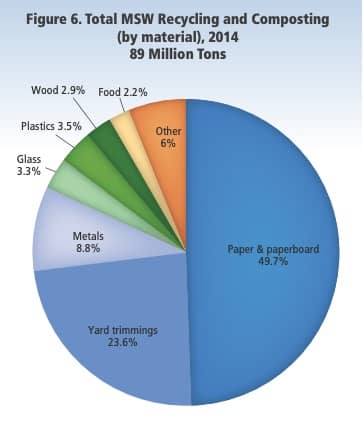
Research shows composting saves 87.2 million tons of waste from joining the landfill. By community composting, you can reduce the amount of trash in your home. This will help you save on cash, as you don’t have to buy so many trash bags.
4. Reduces Landfill Dumpsites
Have you ever passed somewhere close to a dumpsite? The view is horrible and let’s not even talk about the smell. Now by backyard composting, you help reduce such landfill wastes.
In most cases, people assume that when you dump organic wastes, they decay and don’t harm the surrounding, but that’s not the case. If there is not enough oxygen the wastes produce harmful greenhouse gas emissions, and in a case where they decay the process will be slow, and the nutrients are a waste.
5. Healthy Clean Surrounding
When you compost, you get a healthy surrounding. You use compost on your healthy soil, unlike inorganic fertilizers that end up polluting water
Apart from that, whatever you grow is organic and healthy to eat.
How Does Composting Help the World?
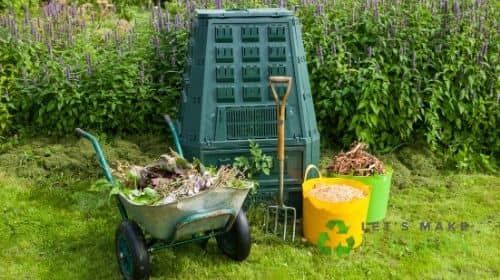
Helps Reducing Landfill Dumpsite
Organic wastes occupy 25%-50% of the dumpsite. According to EPA estimates, it occupies a fourth of the dumpster. Imagine if every person recycled and composted their organic wastes?
The dumpsite would be half what they are now or at least a fourth empty. By decomposing, you reduce landfill and also use the wastes in important ways.
Improves the Environment
By adding compost to the soil, you help improve its quality. This happens as compost provides the soil with nitrogen that gets converted to a usable form.
Apart from that, the soils can hold the water more, and that way, the plants can grow well.
Compost Helps in Reducing Emissions
When waste is sent to landfills, they have no enough oxygen to help in the decaying process. Due to that, the organic wastes start to produce greenhouse gases, which include methane gas.
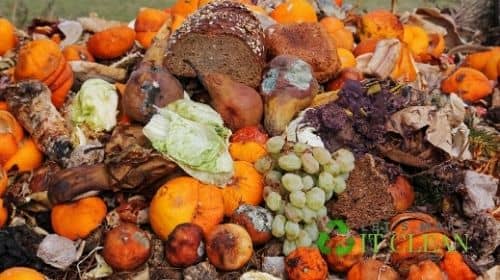
When you compost your wastes, you put them in a way they have oxygen to help in the decaying process and, in that case, helps in preventing the emission of greenhouse gases.
Helps in Maintaining Quality Air
If you are not composting your wastes, the other way of disposing of the waste is through burning the trash.
Especially when it comes to yard waste, which had been sprayed with all kinds of pesticides and used fertilizers in the growing process, when such wastes get burnt, they emit dangerous chemicals that may lead to asthma.
Get Rid of Pests on the Farm
Compost contains microorganisms that repel some garden pests. So, when you use compost in your garden, you will not have to use pesticides to get rid of the pests as the microorganism in the compost pile will do the work for you.
Helps in Improving Biodiversity
As seen above, compost contains different microorganisms. Each organism has its importance in the soil and helps in the plant growth processes.
Why Is Composting Bad for the Environment?
Some homeowners assume disposing of food waste to decompose in landfills is the same as using a composter. This is a wrong practice since the waste decaying in landfills will produce harmful greenhouse gasses such as methane and carbon dioxide.
Instead of allowing your food waste to end up in landfills, it would be best if you compost it using a kitchen compost bin or a composting tumbler. This bin composting method does not produce greenhouse gasses.
Is Composting Worth It?
Compost Helps Reduce Greenhouse Gases
When homeowners dispose of their waste inappropriately, it may end up in a landfill. Food waste in a landfill doesn’t decay completely due to the conditions present.
As a result, the decaying procedure produces methane gas, which is a dangerous greenhouse gas.
When you now compost organic materials diverted from landfills, you reduce the amount of methane emitted to pollute the atmosphere. Global warming becomes less likely to occur since the greenhouse gasses emission is low.
Compost Increases Your Soil’s Nutrient’s Level
If you add a compost pile to your soil, you enrich it. The poor soil in your garden will benefit from useful microorganisms and bacteria that improve your soil’s quality.
The humus created with the help of the microorganisms will help retain your soil’s moisture. Plants will become healthier, resulting in better yields.
Compost Cleans Up Contaminated Soil
Composting absorbs horrible odors from the surrounding. The processes also treat volatile organic compounds, including heating fuels.
There are wood preservatives that are eliminated through composting leaving your garden clean. Pesticides also get cleaned from your garden’s soil through composting.
Controlling of Soil Erosion
Embankments parallel to rivers and lakes benefit from composting by preventing erosion. Turf loss on children playing fields, roadsides, and on hills is also reduced by the application of compost in these regions.
A High-quality Compost Pile Is a Money Maker
Farmers buy water to irrigate their plants. If these gardeners use compost in their gardens, they will reduce the amount of water they use. This is because composted soil retains more water-saving money used to buy the water.
Some diseases and pests get eliminated by compost applied in the soil. The money used to buy pesticides and other chemicals to deal with the impending threat will be used on other farm activities. More income will be generated from the farm with a reduced crop production cost.
Alternatively, you can sell the compost pile you make at a fair price to other farmers.
Benefits of Compost on Lawns and Gardens
Whenever you apply compost in your lawn or garden, your soil benefits in the following ways:
Aerobic Compost With Organic Matter
Aerobic compost adds beneficial organic material to the soil resulting in higher crop production. Some of the organic matter that you can use include food scraps, tea bags, grass clippings, coffee grounds (coffee grounds composting), paper products, and vegetables.
Applying compost in clay soil improves its air circulation. The clay will also drain better, and you can grow crops. Digging in the clay soil becomes easier since the soil particles are no longer firmly adhered to each other.
Sandy soil also benefits by being able to retain water. On normal occasions, water runs through the sandy soil, making it difficult to sustain plant growth.
Worm Compost
Worms provide nutrients to the soil by having microbial activities that result in nutrient generation.
When using a vermicomposter, you create compost tea useful in weed control on a farm. Use a concentrated form of the tea as a mild weed killer.
Compost tea is also used as fertilizer. You will need to have a container to pour the tea into the soil around your plants.
Compost Conserves Resources
Composting gives you compost that helps you conserve some resources: water, energy, and fuel.
Soil that has compost retains water better. This is because the compost helps to drain water slowly. Plants utilize the water more efficiently.
Whenever you apply sufficient amounts of compost, the need to constantly water the plants reduces, saving you both water and money.
Compost also takes up the role of mulch when applied in thick layers around plants. Water will therefore not evaporate as fast as it would without the compost mulch.
Since you will not be transporting your waste away from your home, you will save fuel and energy used in transport. The fuel can then be used to run farm machinery in crop production activities.
Conclusion
Composting is not only important as it helps in saving the environment but also it will help you in saving some cash.
There is no harm in making your compost, and the work involved is little. On the other hand, if you don’t compost, a lot of harm is involved.
Choose wisely as you will help yourself at the same time, get a healthy environment.

